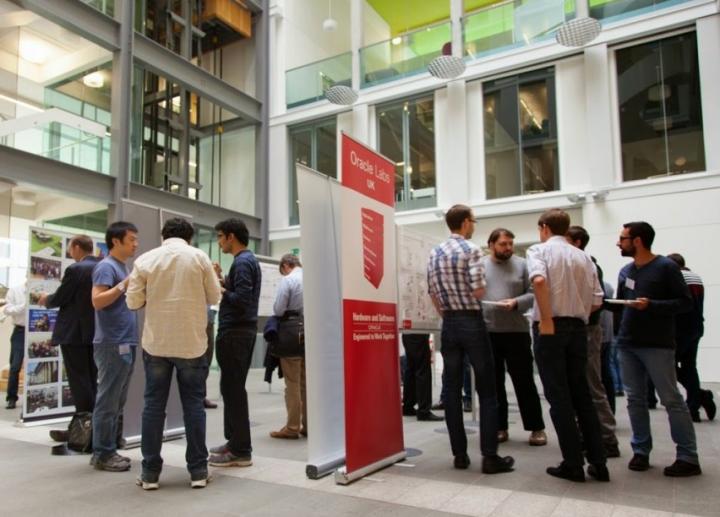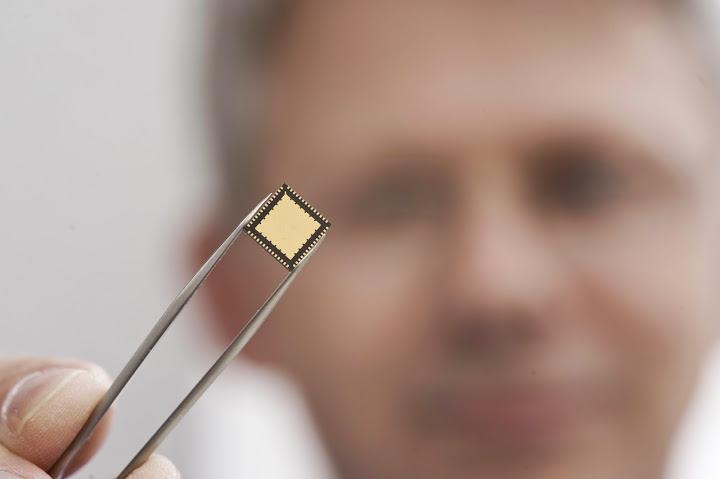Guidance on Internships and Projects
Practical information about internships for our industry partners and current students
Industry partners of the CDT in Pervasive Parallelism are invited to offer internships and industrial projects to students of the CDT and related degree programmes. If you would like to propose an internship and/or industrial project, please contact us at ppar-cdt@inf.ed.ac.uk
Internships

The CDT PPar defines an internship as a short period in which a student is employed to work full-time for a company, usually on a defined topic or project. Internships arranged through the CDT PPar will have the following characteristics:
- Normally around 6 months long (but could last anywhere from 3 months to 1 year)
- Full-time
- Paid (the student will suspend their studies during this time, and will be employed by the company)
- Can take place at any time throughout the year
- Can be based anywhere in the world
The CDT PPar can advertise internships offered by its industry partners to a wider pool of PhD students within the University of Edinburgh’s Schools of Informatics, Engineering, Physics, Mathematics, and/or the Edinburgh Parallel Computing Centre, upon request.
Industrial Projects
Industrial projects are an excellent way for students and industry partners to work together on a topic that is of interest to both parties. Industrial projects normally have the following characteristics:
- The topic of the project will normally contribute directly to the student’s main research activity.
- Usually unpaid. Some companies choose to offer a small stipend enhancement, but this must be subject to any constraints on paid employment set by the student’s funding body.
- The industry partner representative, or a suitable colleague, should informally co-supervise the student during this time, along with the student’s existing academic supervisors (see the FAQs below for more about this).
- The student can work on the project at the company’s offices, at their university, or a combination of the two. If your company is based in Edinburgh, it may be most convenient for both parties if the student visits the company for progress meetings or to use specific resources, but conducts the bulk of project work at the university.
Industry partners can propose:
- a specific project title or topic for the student to deliver;
- a general idea of a business need which requires further development;
- a core research theme to be developed by the student into a bespoke project;
- an intended outcome for your company, leaving the design of the research entirely to the student.
Once you have proposed a suitable project topic or theme, the CDT PPar can work with you to develop it.
Frequently Asked Questions
Industry Partner FAQs:
Q: What can I gain from offering an internship or industrial project to a postgraduate student?

A: The company benefits from working with a highly-motivated and trained student, and from the expertise in HPC and parallel computing that can be provided by the student’s supervisors in the CDT PPar, EPCC and related degree programmes. As one of the CDT PPar’s industry partners stated, the company gains from the student’s fresh perspective, as students often see things that more experienced industrial employees do not. Internships in particular are an opportunity for industry partners to try working with a particular student and assess whether they are suitable for working at their company before they recruit them. The majority of students who undertake internships go into a career in industry after graduating.
Q: Can industry partners interview potential students for internships and projects?
A: Yes. Industry partners may arrange and conduct separate interviews at any other time. Alternatively, you can ask the CDT PPar to nominate a suitable student for a particular internship or project.
In November 2015 the CDT PPar hosted a ‘matchmaking’ event, at which industry partners conducted short, informal interviews with multiple students. We plan to hold similar events roughly once per year.
Q: Can I find out more about students to recruit for internships and projects?
A: Yes. Information about the CDT in Pervasive Parallelism students is available in our People section. Their CVs and research summaries are available upon request.
In the run-up to each ‘matchmaking’ event, we will make available information about the wider pool of PhD, MSc and final-year undergraduate students who will attend the event.
Q: Will there be an Agreement governing the internship or project?
A: For internships in which the student is employed full-time by the company, no further Agreement with the University is required (these are “stop the PhD clock” internships from the University perspective) although some form of agreement between your company and the intern will be required.
For other situations, involving a student who is also still active at the University, the key parameters of the project must be set out in an Agreement and signed by the Company, University and Student prior to commencement. The Agreement will include, for example:
- project title, start date and delivery deadline
- project outputs
- location
- operating procedures and workplace regulations
- Intellectual Property rights, non-disclosure agreements and ownership on completion
Q: Is there anything you would like us to report back to you about an internship?
A: Yes, please! It would help us to ensure we continue to propose the most suitable internship candidates and provide appropriately for their career and professional development if you could download, complete and return a short Host Questionnaire. This questionnaire is based on the EPSRC-approved Researcher Development Framework, which we encourage our students to use as a guide to skills and professional development needs and a pointer to courses offered by the Informatics Graduate School, the University’s Institute for Academic Development and its Careers Service.
We also ask our students to write a 1-2 page non-confidential case study on their internship. We don’t want students to return these directly to us – we want them to pass them to you for clearance and for you to return them to us, once you’re comfortable that the material is non-confidential.
Student FAQs:
Q: Why should I undertake an industrial internship or project?
A: Students who undertake industrial internships and projects gain valuable understanding of the real-world problems that industry is facing, and direct experience of tackling one of these problems, thus helping to enhance their employability.
Students normally undertake industrial projects which contribute directly to their main research activity. The insights you will gain from this industrial engagement will strengthen the content and the impact of your thesis.
You may wish to read these testimonials from students who have undertaken similar industrial project placements.
Q: Can final-year undergraduate students take on an industrial project?
A: Since undergraduates have a busier course schedule than postgraduate students, you probably would not have time to undertake an industrial project, except for during the summer. Please check the rules with your relevant teaching office before contacting a company about an industrial project.
Q: Do industrial projects count as working while studying?
A: Not in most cases. However, this will depend on how closely related the research is to your thesis, whether the project work is paid or unpaid, and whether you will be working at the company’s offices or at your university. Once you have identified a project you would like to undertake, please talk to your graduate school to ensure that you follow the guidelines of your school, university and funding body.
Q: Is there more guidance available about how to choose internships, and how to get the most out of them?
A: Yes. The Institute for Academic Development and the CDT in Pervasive Parallelism have developed a Transferable Skills course on internships and career planning, which will be offered once a year. Please see the CDT PPar Transferable Skills page for upcoming dates and a link to the course description.
Q: Are the resources from the Internships & Career Planning course available online?
A: Please refer to the following resources:
